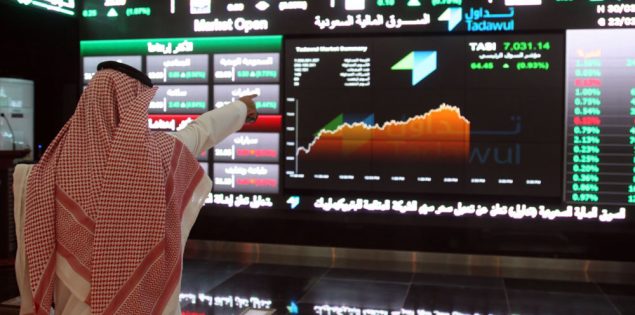
With the fallout from falling oil prices, experts predicted that the Kingdom will be forced to reduce its estimates of economic growth for 2019 and could reach the level of deflation.
Monica Malik, an expert at Abu Dhabi Commercial Bank, said the kingdom’s real gross domestic product could contract by 0.2%, noting that in February the bank expected a 0.9% growth.
William Jackson, Emerging Markets chief economist for emerging markets, said much of the downward revision to the kingdom’s economy was due to the impact of oil production cuts that would weigh heavily on GDP growth in 2019.
An economist in Riyadh, who preferred to stay unnamed, said that “any forecast made more than a month ago will have to be updated in the light of indications that we are entering a global slowdown.”
“The kingdom will have to adjust (growth) figures downwards, especially if oil reaches $ 55 and then remains or falls below $ 50 in a global recession scenario or a general trade war.”
The Saudi Arabian Monetary Agency (SAMA) has forecast economic growth of at least 2 percent this year, while economists now expect a second contraction in two years, or marginal growth at best.
While the Saudi government estimates a fiscal deficit of 4.2% of GDP this year, the IMF estimates the projected deficit of 6.5%.
Therefore, the emerging markets economist at Capital Economics Fergus Fores expects Saudi fiscal policy to become “less supportive” if oil prices remain low, adversely affecting non-oil activity.
Despite the Saudi government’s drive for economic reforms aimed at diversifying sources of income, 43% of real GDP remains dependent on oil production, so production cuts in the last two years have exacerbated volatility in growth.
Of the 62 economies, the Kingdom’s economy ranked ninth among the most miserable in the world, in 2019, down one place from last year 2018, where it was tenth, according to the agency ‘Bloomberg’.
Unemployment in the kingdom rose to 12.7 percent, with 970.2 thousand Saudis seeking employment, 55.3 percent of them with university degrees, according to the General Statistics Authority.
Bloomberg expects the kingdom to post inflation of 14.4% this year.
Venezuela’s Bloomberg misery index, for the fifth consecutive year, is based on the old notion that low inflation and unemployment generally show how comfortable people are in their economies, but sometimes the low numbers can be misleading in both categories, the agency said. American.
The International Monetary Fund has repeatedly lowered global economic growth forecasts for 2019.
The Kingdom announced that Riyadh will host the 15th G20 Leaders’ Summit on November 21 and 22, 2020, as the first Arab country to host the event, the most important international economic forum.